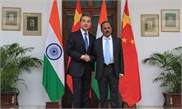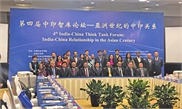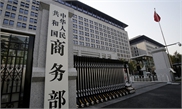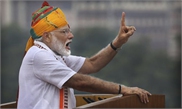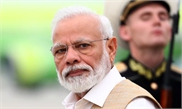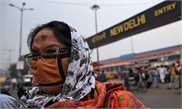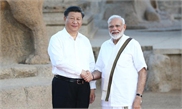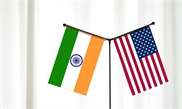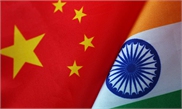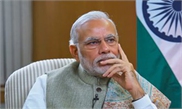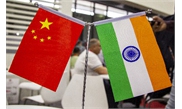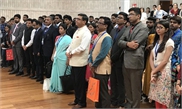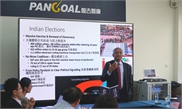China, India agree to enhance mutual political trust to properly handle border issues
China and India agreed here Saturday to enhance mutual political trust so as to properly handle border issues and jointly safeguard peace and tranquility in the border areas.
China and India should aim to safeguard world order along with multilateralism
China and India believe in reforming not revolutionizing the current world order, which both countries should aim to safeguard along with multilateralism, a forum held in Beijing recently heard.
China makes great efforts promoting Tibetan medicine as India continues hyping its claim
Tibetan medicine, or Sowa Rigpa in Tibetan, is over 2,000 years old. Tibetan medicine was developed on the Qinghai-Tibet Plateau. In the past decades, it has prospered in China with public policy support.
Hyping Tibet medicine devt a futile attempt to stir China-India disputes: experts
Tibetan medicine has prospered in China, and India's latest move to set up a Tibetan medicine institute in the disputed region Ladakh aims to hype its efforts in Tibet medicine development and is a futile attempt to stir disputes with China, Chinese experts noted, after Indian media reported that New Delhi was seeking to recognize the system as India's own intangible cultural heritage.
China terminates anti-dumping duties on pyridine imports from India, Japan
China's Ministry of Commerce (MOC) on Wednesday announced its decision to terminate review on anti-dumping measures over pyridine imports from India and Japan.
India's GDP slowdown won't soon be reversed
There is a downturn in India's economy, but will it become a protracted one? More specifically, will economic growth fall below 5 percent?
India will lose both ways after rejecting RCEP
India will find itself in a dilemma that would be of its own making. It will lose the opportunity of development along with links to the international community. At the same time, New Delhi will also not be able to reap the benefits of protectionism.
India should look to China for its pollution solution
Both China and India are victims of air pollution and two countries should join hands to create clear blue skies. What China has achieved offers valuable experience to India, while China could also learn from India's plight. China and India mirror one another, and there is plenty of room for cooperation.
China's growth inseparable from its system
If India intends to learn from China's experience, then it has to reform its agricultural governance system, make it more efficient, with stronger organizational functions and more input, which is precisely the most difficult thing to achieve.
Xi-Modi informal meeting achieves fruitful results: Chinese vice FM
The just-concluded informal meeting between Chinese President Xi Jinping and Indian Prime Minister Narendra Modi has achieved fruitful outcomes, a senior Chinese diplomat said here on Saturday.
Unlike Australia, India treads softly on ties with US
US President Donald Trump will travel to Texas on Sunday to attend an event with Indian Prime Minister Narendra Modi culminating in their third meeting. Later the same day, Trump will join a tour in Ohio with Australian Prime Minister Scott Morrison. Why does the US attach importance to advancing relations with India and Australia? Is it indicative of efforts by the superpower to reinforce its Indo-Pacific strategy? Global Times reporter Lu Yuanzhi talked to two Chinese experts.
'Balance of power' a strategic trap for India
The strategy of the balance of power is generated from the diplomacy of Western countries. In today's globalized world, Asian countries are supposed to have better choices. This is a test for not only for India, but also China. Both need work together to walk out of this strategic trap.
Communication key to China-India trust
Mutual trust between China and India can not only promote cooperation between the two countries, but also avoid the dilemma of neighboring countries sandwiched between China and India, which is conducive to the harmonious development of regional international relations, and will create better conditions for Sino-Indian cooperation in global affairs.
Resurgent identity in ascendant India
We would like to regard Modi's decision on Kashmir as a trial, which will greatly impact global geopolitics. Neighboring countries of India will therefore keep an eye on what the future holds for Modi's decision and the socioeconomic consequences it brings.
Generic medicine trade can tie China, India closer
China has revised its drug laws to reduce penalties for the sale and import of unapproved drugs, sending a signal that the country may take an open mind toward cheaper generic drugs, especially those from India, to give poor and critically ill patients greater opportunities to extend their lives.
India vows charter amendment won't change Kashmir's Line of Control
Chinese State Councilor and Foreign Minister Wang Yi met Indian External Affairs Minister Subrahmanyam Jaishankar in Beijing on Monday, during which the Indian diplomat pledged that India's constitutional amendment won't create new sovereignty claims and won't change the Line of Control (LoC) in the Kashmir region.
China, India FMs expected to cool down Kashmir row
The three-day visit by India's top diplomat to China, which comes amid rising tensions between Pakistan and India over territorial disputes, is expected to help stabilize the situation and avoid further conflicts arising from misjudgment or irrational decisions, Chinese observers noted on Sunday.
India to maintain 'continuity' in China ties
After Indian Prime Minister Narendra Modi won a second term in office last month when his ruling party claimed a landslide victory in elections, the rest of the world has focused its attention on what foreign policy he will adopt over the next five years.
